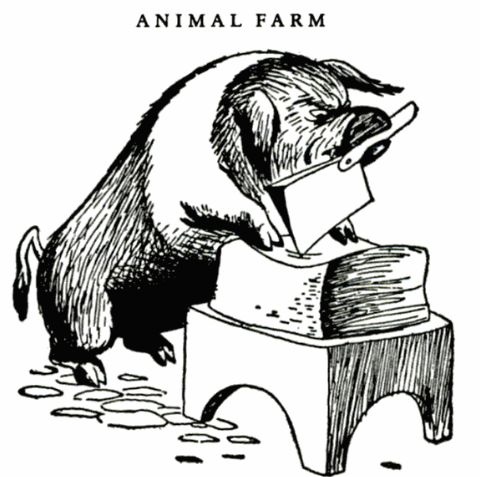Should been really have been included in the following passage from George Orwell’s Animal Farm, or was this somehow an erroneous insertion of a spurious word?

Illustration from p. 17 of the 1990 hardcover edition from Houghton Mifflin Harcourt – fair-use copyright exemption
The harness-room at the end of the stables was broken open; the bits, the nose-rings, the dog-chains, the cruel knives with which Mr. Jones had been used to castrate the pigs and lambs, were all flung down the well.
I thought it should be one of these two alternatives:
- with which Mr Jones had used to castrate the pigs
- with which had been used by Mr Jones to castrate the pigs
But Orwell’s sentence seems to be a mix of my two rewritten portions.
